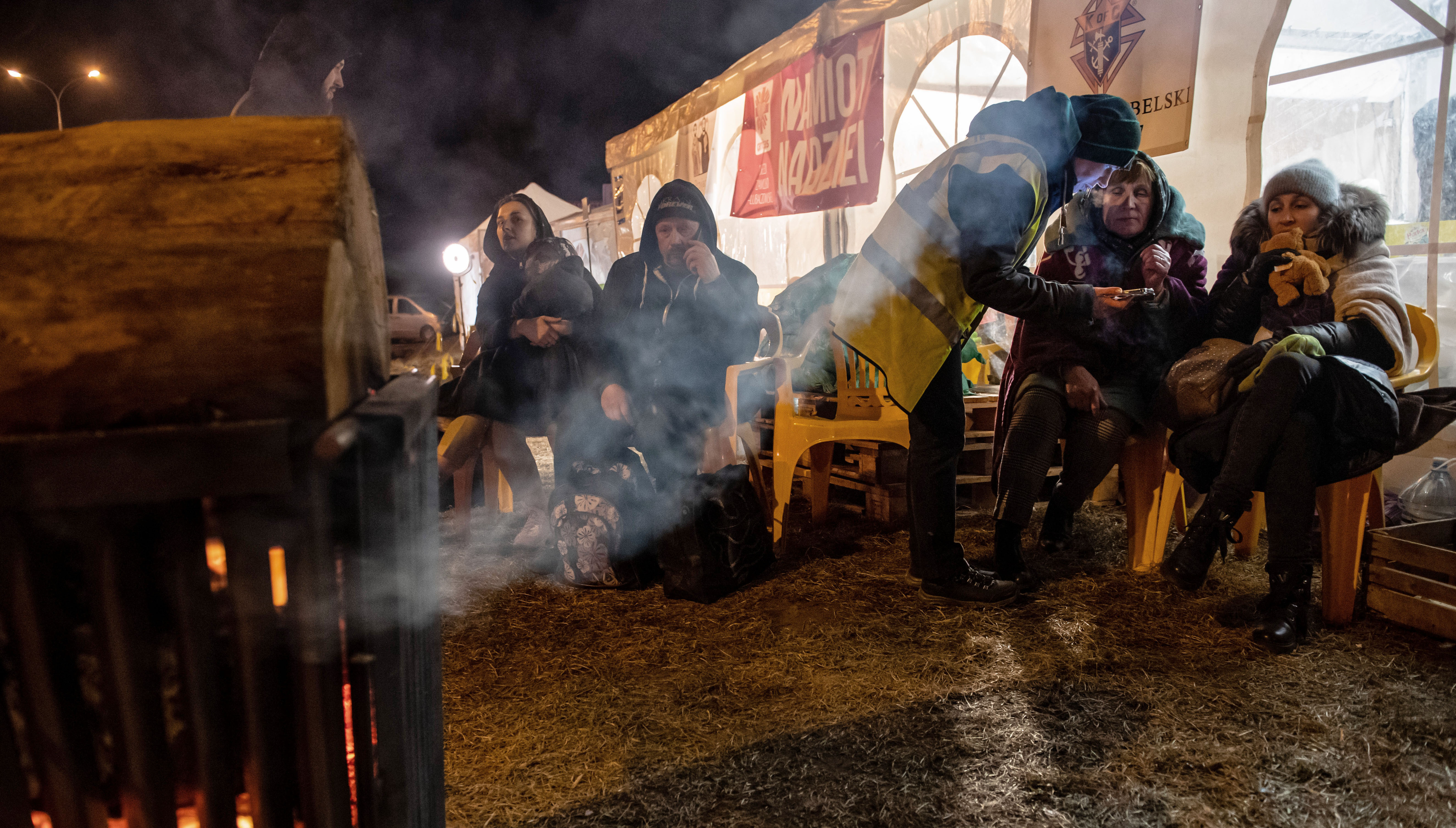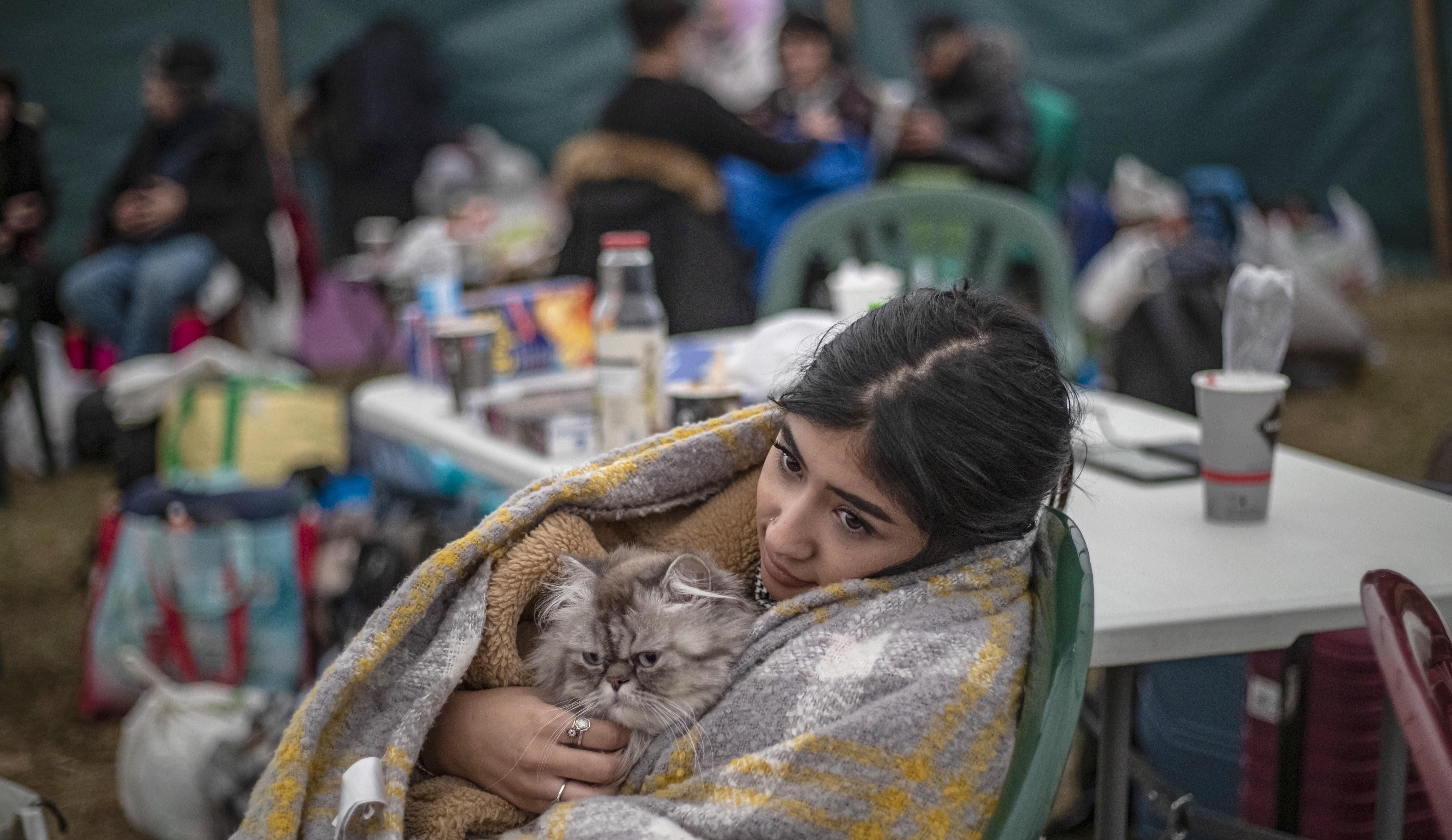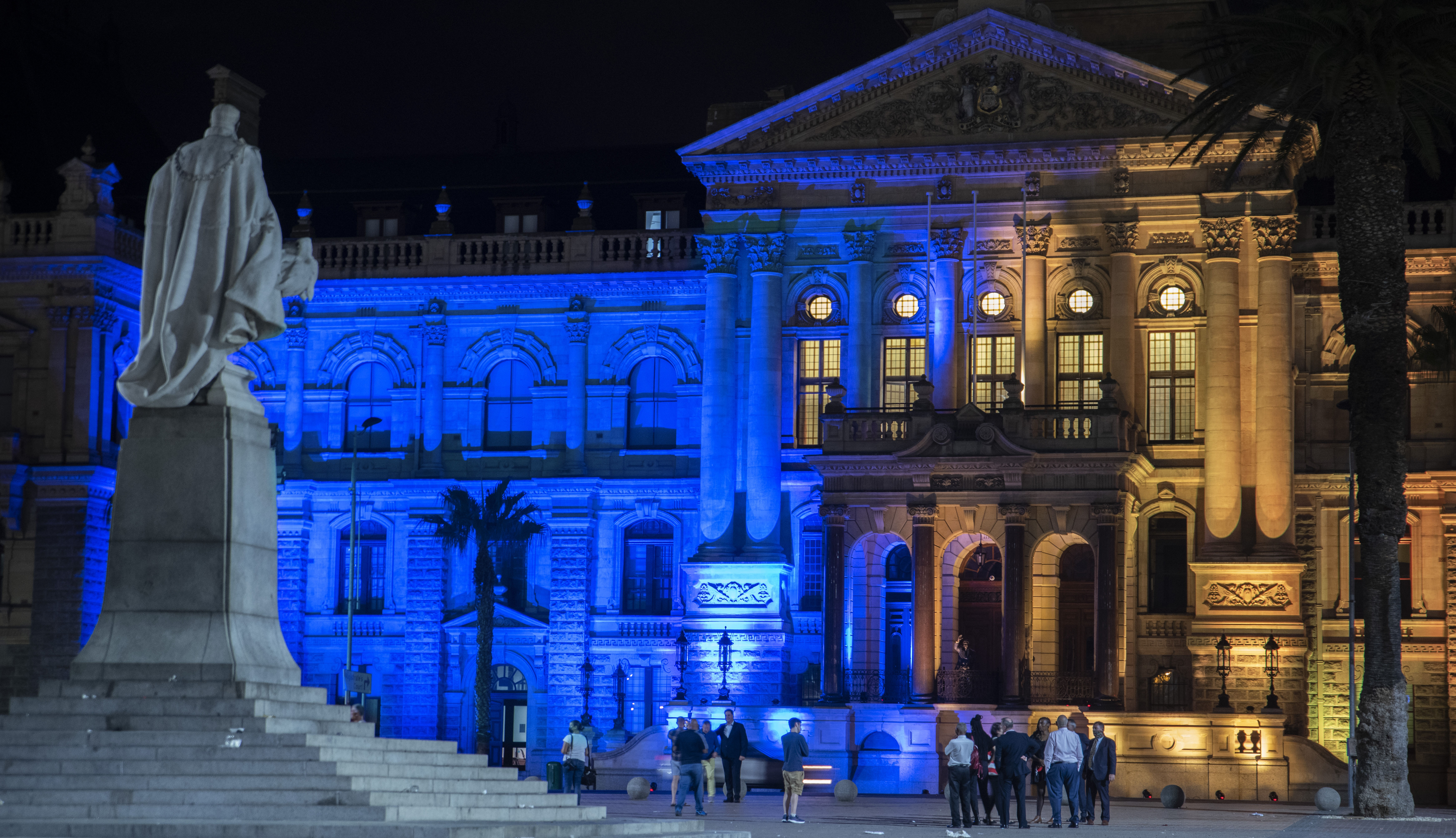The past week has been extraordinary. Not only because of what has happened in Ukraine under Russia’s unlawful invasion by all standards of international law. But also because of South Africa’s stomach-turning response under a president who – whether it has been to deal with incorrigible corruption by his own party, or scheming ministers within his own Cabinet, or now, Russian criminality before our very eyes – has proved himself no Zelensky.
As Justice Malala has written, the country’s response to the Ukraine situation has been an embarrassment on a par with “our quisling actions on Zimbabwe and Sudan, where we stood with dictators and murderers Robert Mugabe and Omar Al-Bashir against the suffering of the ordinary people of those countries”.
He points out that in “typical fashion, President Cyril Ramaphosa and the ANC have now apparently berated International Relations and Cooperation Minister Naledi Pandor for condemning the invasion of Ukraine in South Africa’s first formal response last week”. Could it get worse? Sadly, yes. As Malala laments: “Then Ramaphosa, his office and the ANC issued statements blaming Ukraine for being invaded by Russia, and coruscating Biden for not meeting Putin without an assurance that there would be no aggression against Ukraine. On top of this, SA officials reportedly joined the Russian embassy to celebrate the Russian military as it entered Ukraine.”
Zapiro’s cartoon in Daily Maverick captured South Africa’s servile behaviour perfectly. And if you wanted a barometer of how far our government has fallen, consider that there’s little distance between what South Africa is doing on the international stage, and Carl Niehaus’s breakfast stunt this past Sunday. For anyone with the stomach for it, as Russian soldiers streamed across the borders of a sovereign country to begin a campaign of aggression and now-apparent war crimes against their neighbours, Niehaus posted a picture of himself dressed in red and smug-smiling with his coffee. His Twitter handle said he was extolling his support for Venezuela’s “clear stance supporting #PresVladimirPutin & Russia regarding #Ukraine”. You know something’s gone wrong internationally when Switzerland moves away from its treasured neutrality to join the EU’s sanctions against Russia (as it has). And you know something’s gone wrong at home when our government’s position can’t be told apart from the posturing of Mr Niehaus at his favourite Sunday-morning coffee shop.
 Refugees from Ukraine gather near the border in Hrebenne, southeastern Poland, during the Russian invasion of their country on 3 March 2022. (Photo: EPA-EFE/Wojtek Jargilo)
Refugees from Ukraine gather near the border in Hrebenne, southeastern Poland, during the Russian invasion of their country on 3 March 2022. (Photo: EPA-EFE/Wojtek Jargilo)
Whatever the realpolitik that might be motivating Ramaphosa’s “quisling” efforts, my focus is through the lens of international and constitutional law. And the point is simple: Russia’s conduct does not allow South Africa or its President the space to be “nuanced”, or “neutral”, in their efforts to placate Putin. That is because of two principles: one of international law accepted by all serious international lawyers across the globe, and another of constitutional law underlined by our Constitutional Court.
Starting with the international law principle, it is as obvious as the sound of the Russian missiles currently raining down on Kyiv. It is that international law does not permit the use of force as a means to conduct international relations, alongside the related rule that states may not violate the sovereignty and territorial integrity of other states. After World War 2, Article 2(4) of the United Nations Charter (prohibiting the use of force) was the key to our new world order away from barbarity and force. All of Putin’s efforts to explain his attack on Ukraine have been subjected to withering criticism by international lawyers across the globe. One of the best examples is the clear and authoritative account by Elizabeth Wilmshurst, Distinguished Fellow in the International Law Programme at Chatham House, London (see here). As another leading acolyte in the field put it in the Financial Times (see Philippe Sands, “Putin’s use of military force is a crime of aggression”):
“One of the differences today is that rules exist to protect us from such actions, reflected in the Charter of the United Nations, the closest thing we have to an international constitution. It is the Charter’s most significant commitments that Putin has shredded. His televised speech offered a set of fanciful reasons for the invasion: a Greater Russia, a fake Ukraine, a Nazi Ukraine, a genocide being committed against ethnic Russians, etc. The claims are familiar, of the kind that motivated the 1938 Nazi playbook on Munich and Slobodan Milosevic’s hopes for a Greater Serbia.”
Yet South Africa declines to see this for what it is. Instead, this week it refused to join the majority of the world’s states, including a number of African nations, in condemning Russia’s aggression before the United Nations (see Peter Fabricius).
South Africa claims, through its ambassador to the UN, Mathu Joyini, that its refusal to vote alongside the majority was because the UN resolution “does not create an environment conducive for diplomacy, dialogue, and mediation” – as though the resolution was the problem, rather than Russia’s bombardment of Ukrainian children, civilians and soldiers defending their homeland from invaders.
But this double-speak is laid bare by the illuminating words and conduct of another giant of international law, Professor Alain Pellet. For years he had acted, like South Africa, as a friend of Russia, representing that country before the International Court of Justice (ICJ) when it approached him – as a leading lawyer arguing cases before the World Court – to participate in Russia’s defence before the ICJ and two arbitral tribunals concerning certain consequences of the Russian takeover of Crimea in February and March 2014.
Ramaphosa and his UN team would do well, as would all South Africans, to read the full statement issued by Pellet, in his recent public decision to withdraw from representing Russia (the full article is here). In it, Pellet explains as follows, clearly alive to the same Russian history that the ANC repeatedly appears to contort and valorise in its affection for the USSR:
“Dear Russian friends, what a disappointment and sadness it is that your country, so endearing in so many ways, is calling into question those principles that we wanted to believe were recognised by all ‘civilised nations’, i.e. by the international community of States as a whole. And I am all the more saddened by this because Russia has played a major role in the tremendous movement that led to this achievement. It was Russia that convened the two great Peace Conferences of 1899 and 1907 which gave a decisive impetus to the process of elaborating the humanitarian law of war. It was the USSR that paid the highest price for the capitulation of Nazi barbarism, in Leningrad, Stalingrad, or Kursk. It was also the USSR that led the fight for the effective recognition of the right of peoples to self-determination at the United Nations, and sometimes in the field. And now Russia is trampling on these principles, which have been so difficult to impose in positive law – the law that we would like to see actually in force.”
But unlike South Africa, Pellet knows when the line has been crossed, and when the time for straight talking and principled action has come. His concluding paragraph is an example to all, like our President, who claim to be defenders of the rule of law:
“I have enjoyed working with you to defend the interests of your country, which I love dearly. I appreciated that while defending them together, we could exchange freely on the limits not to be crossed. I have seen the scruples of some of you and understood the unwavering commitment of others. But enough is enough. Yesterday I sent my letter of resignation to the competent authorities: lawyers can defend more or less questionable causes. But it has become impossible to represent in forums dedicated to the application of the law a country that so cynically despises it.
Alain PELLET, Counsel for Russia before the ICJ and other international tribunals until 23 February 2022.”
It is not too late for South Africa to say enough is enough. It is impossible for our country, without attracting deep shame and opprobrium globally, to cosy up to a country that so cynically despises the application of international law. We should reverse our position publicly and openly condemn what is happening in Russia, and we should do so guided by three examples:
First is the example of principled people like Pellet, who have shown that any past fealty to or friendship with Russia is no excuse not to call out evil when it is happening. We claim to be a country based on the rule of law – so when a “friendly” state acts in a manner that debases the very foundation of our rules-based international law system, we must denounce that, or the rule of law is diminished by our cowardice and complicity.
Second, we should be highlighting that Russia’s conduct is not only a UN violation, but would be an African violation if it were committed here. In this regard, we should be calling attention to the example of the African Charter on Democracy, Elections and Governance (which South Africa signed and ratified on 23 December, 2010), whereby our continent in ringing terms condemns “unconstitutional changes in government”, including by “any putsch or coup d’état against a democratically elected government”, or any “intervention” to replace a “democratically elected government”, or any “replacement of a democratically elected government by armed dissidents or rebels”. If we condemn – by treaty – such behaviour in our continental backyard, on what possible legal or moral basis can we ignore egregious violations of those principles by Russia when it acts in Europe?
Third, we are a party to the Rome Statute of the International Criminal Court (ICC). Already, the prosecutor of the ICC in The Hague has issued a stern warning that he is considering the hostilities as potentially amounting to international crimes, and that shelling of civilians and other acts may amount to war crimes and crimes against humanity. On 2 March 2022, the prosecutor said he would immediately open an investigation into possible war crimes committed in Ukraine, following requests to do so by an unprecedented number of the court’s member states (see here). South Africa is obliged, as a member of the court, to assist the work of the ICC, not hobble it by failing to condemn the very aggression by Russia that has laid the foundation for these international crimes.
If South Africa takes these international law obligations seriously – under the UN Charter, the African Charter and the Rome Statute – it should reverse its position immediately and give up on the “quisling” double-speak about Russia’s aggression and crimes. It should make human rights and the rule of law its clear guides in facing such appalling behaviour, even by a “friend”. Writing in 1993, Nelson Mandela emphasised that South Africa’s foreign relations would henceforth be based on the belief that “human rights should be the core concern of international relations”. He made it clear that South Africa was “ready to play a role in fostering peace and prosperity in the world we share with the community of nations”. He committed South Africa to being at the “forefront of global efforts to promote and foster democratic systems of government”.
 A Moroccan student waits with her cat in a tent in Kyiv as people fleeing Ukraine arrive at the border crossing in Vysne Nemecke, Slovakia, on 1 March 2022. (Photo: EPA-EFE / Martin Divisek)
A Moroccan student waits with her cat in a tent in Kyiv as people fleeing Ukraine arrive at the border crossing in Vysne Nemecke, Slovakia, on 1 March 2022. (Photo: EPA-EFE / Martin Divisek)
That role is clearly laid out under the customary international laws and treaties that are binding on us. Which means that there is another reason Mandela’s vision and our accepted international law principles should be grounds for our government to reverse the shameful road it has followed thus far. Former president Jacob Zuma, a decade ago, tried to ignore our international law obligations by cosying up to Zimbabwe in disbanding the SADC Tribunal. The Constitutional Court declared his conduct unconstitutional. In coming to that finding, the court reiterated in crystal terms the very point I’ve been stressing in this article. It made it clear that it was unlawful for the President to exercise public power in such a way as to cause South Africa to violate its international law obligations, and it was unlawful to cast a vote or act within an international institution (in that case the SADC, in this case the UN) without properly taking into account our international law obligations and the rule of law, including the duty to act rationally. Put differently, when our President or our ambassadors act while representing South Africa on the international stage, they act unconstitutionally when they conduct themselves inconsistently with South Africa’s international law obligations. That is because, said the Constitutional Court, international law “enjoy[s] well-deserved prominence in the architecture of our constitutional order”.
One of the clearest international law obligations is to respect the prohibition on the use of force in international relations – a bedrock principle of the international rule of law. It is difficult to see how our government can continue to soft-soap what the Russians are doing before the world’s eyes, by abstaining from critical votes at the United Nations to condemn such internationally unlawful action by Russia. Such conduct by our government is not only morally reprehensible, it’s also justiciable before our courts. If South Africa does not quickly reverse its position, the legal risks for it increase. For example, we know that Russia wants to claim into its territory the two separatist Ukrainian regions of the Donetsk People’s Republic and the Luhansk People’s Republic. But, as Wilmshurst points out: “International law (specifically Article 41(2) of the 2001 Draft Articles on State Responsibility which reflects customary international law) imposes obligations on states not to recognise situations resulting from the use of force. This includes the obligation not to recognise the independence of the two breakaway republics.”
So, as we race quickly towards the bloody result of Russia’s invasion, not only will questions be asked about whether states – and their voting at critical international institutions – aided and abetted or were complicit in Russian aggression and international crimes committed by its forces, but South Africa may soon confront the question of whether to recognise those breakaway “states”. As Malala has written, by its current decisions South Africa has already put itself on the wrong side of history. If it continues in this way, it may find that it has also put itself on the wrong side of both international and constitutional law. DM
Max du Plessis is Senior Counsel in Durban; Adjunct Professor, International Law and Constitutional Law, Nelson Mandela University and the University of Cape Town; Associate Tenant, Doughty Street Chambers, London). He writes in his own capacity.
[hearken id="daily-maverick/9226"]




 epaselect epa09794156 A Moroccan student in Kiev sits with her cat in tent as people fleeing Ukraine arrive to Slovakia, at border crossing in Vysne Nemecke, Slovakia, 01 March 2022. Slovakia said it will let fleeing Ukrainians into the country following Russia's military operation in Ukraine. The Slovak Police Force announced on social media that people not holding a valid travel document will also be eligible for entry on an individual basis. EPA-EFE/MARTIN DIVISEK
epaselect epa09794156 A Moroccan student in Kiev sits with her cat in tent as people fleeing Ukraine arrive to Slovakia, at border crossing in Vysne Nemecke, Slovakia, 01 March 2022. Slovakia said it will let fleeing Ukrainians into the country following Russia's military operation in Ukraine. The Slovak Police Force announced on social media that people not holding a valid travel document will also be eligible for entry on an individual basis. EPA-EFE/MARTIN DIVISEK 